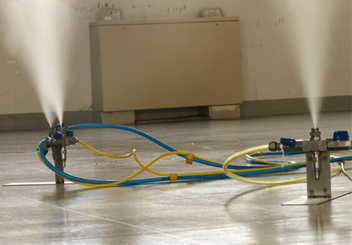Where Mold Comes From
Mold is a fungus that occurs naturally within an ecosystem. Mold, mildew, yeast, and other fungi serve a variety of purposes in nature. These include decomposition of raw materials, natural pesticide for plants, and some molds have been found to create powerful antibiotics in the medical community. Mold can serve a great purpose when found in an outdoor environment but it can also cause serious health issues when found in indoor settings.
Within an ecosystem, plants and animals make their way through a natural life cycle of conception, growth, and death. Without mold these dead organic materials would pile up and cover the earth. Mold naturally begins to feed on these materials and increases the decomposition process. The role that mold plays within an ecosystem is vital.
Mold also serves agricultural purposes and develops naturally on plants. Throughout history mold growing on plants has served as a natural pesticide to fight off bugs and virus. The same organic materials and moisture that help plants to grow also provides great conditions for the production of mold and fungus. When mold grows it gives off a trace poison called mycotoxins that helps fight disease on plants.
The same mycotoxins that are used to fight disease in plants have also been harnessed by medical scientists to form helpful drugs and antibiotics. One of the most well known examples is Penicillin. Many refer to Fleming as a careless technician who returned from vacation to find that a mold had developed on an accidentally contaminated staphylococcus culture plate. Upon examination of the mold, he noticed that the culture prevented the growth of staphylococci.
Mold serves valuable purposes in controlled environments and outdoors. Problems can arise when mold goes uncontrolled and finds its way into indoor environments. The same mycotoxins that are poisonous to bacteria and virus can be poisonous to the human body.
US Army Corps of Engineers Tests Our System

Learn how our unique dry fog system stood up to the rigorous tests put forth by the US Army Corps of Engineers






